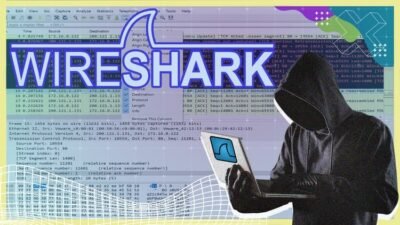The "Low-Level Computing for Computer Science & Engineering 2025+" course on Udemy is designed to take students on an exciting journey through the fundamental principles of low-level computing. Whether you are a budding programmer or an aspiring engineer, this course provides a solid foundation in essential skills and concepts that drive computer science and engineering today. With its clear explanations and practical examples, students will find themselves more confident in dealing with lower-level programming and system design.
What you’ll learn
In this course, you’ll dive deep into several crucial areas of low-level computing, including:
-
Assembly Language Proficiency: Gain a thorough understanding of assembly language, the low-level language that directly communicates with hardware, which is pivotal for performance optimization and system-level programming.
-
Memory Management Techniques: Learn about how memory allocation works, including stack, heap, and global memory management, along with hands-on techniques to manage data efficiently.
-
Understanding CPU Architecture: Explore the fundamental components of a CPU, such as registers, instruction sets, and control units, allowing you to write more efficient code.
-
System Calls and Interrupt Handling: Discover how operating systems interact with hardware, and understand the role of system calls and how interrupts work, crucial for real-time programming.
-
Embedded Systems Basics: Delve into the world of embedded systems, where low-level programming meets hardware design, a skill increasingly demanded in today’s technology landscape.
- Real-World Applications: Engage with various practical applications of low-level programming, including scripting and low-level debugging techniques, to refine your problem-solving skills.
By the end of the course, you’ll not only grasp theoretical concepts but will also feel comfortable applying what you’ve learned in practical settings.
Requirements and course approach
To successfully navigate this course, students should ideally have basic programming knowledge, preferably in languages such as C or Python. A foundational understanding of computer science concepts will also enhance the learning experience. This course is designed with accessibility in mind, making it suitable for both beginners and those looking to deepen their knowledge.
The course employs a hands-on approach, combining comprehensive video lectures with quizzes and practical exercises that reinforce learning. This blend of theoretical and applied knowledge ensures that students remain engaged and retain critical skills throughout their learning journey. Additionally, the course includes downloadable resources to facilitate practice outside of instructional hours.
Who this course is for
This course is perfect for:
-
Computer Science Students: Those currently studying or considering a degree in computer science will find this course invaluable for gaining a foundational understanding of low-level computing concepts.
-
Engineering Students: Students in electrical or computer engineering fields will benefit from a deeper knowledge of how hardware and software interact.
-
Aspiring Developers: Programmers looking to broaden their skillset, especially in systems programming or embedded systems, will find practical insights that enhance their coding abilities.
- Tech Enthusiasts: Anyone passionate about technology and curious about how computers work at a deeper level will enjoy this program.
Outcomes and final thoughts
Upon completing the "Low-Level Computing for Computer Science & Engineering 2025+" course, learners will emerge with a robust understanding of crucial low-level programming concepts that are integral to advanced computing and engineering applications.
Students will be more capable of addressing real-world problems, enhancing their self-confidence in tackling technical challenges. This course not only equips participants with essential skills but also encourages a mindset geared towards continuous learning and exploration within the tech field.
If you are eager to understand the intricacies of how computers function—from assembly language to memory management—this course is a must-join. Its practical insights and engaging teaching methodology make it an excellent resource for anyone seeking to build a solid foundation in low-level computing.















